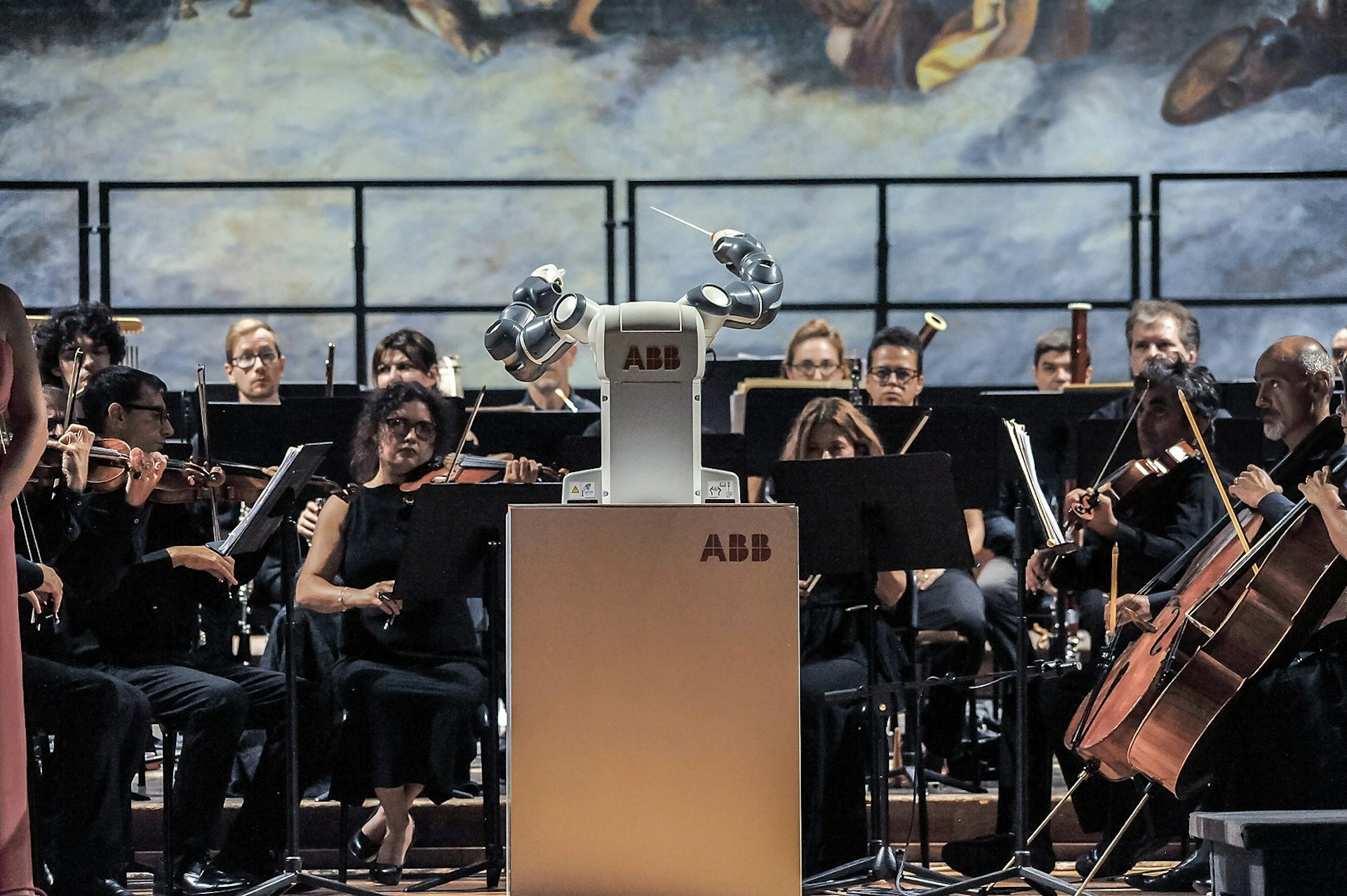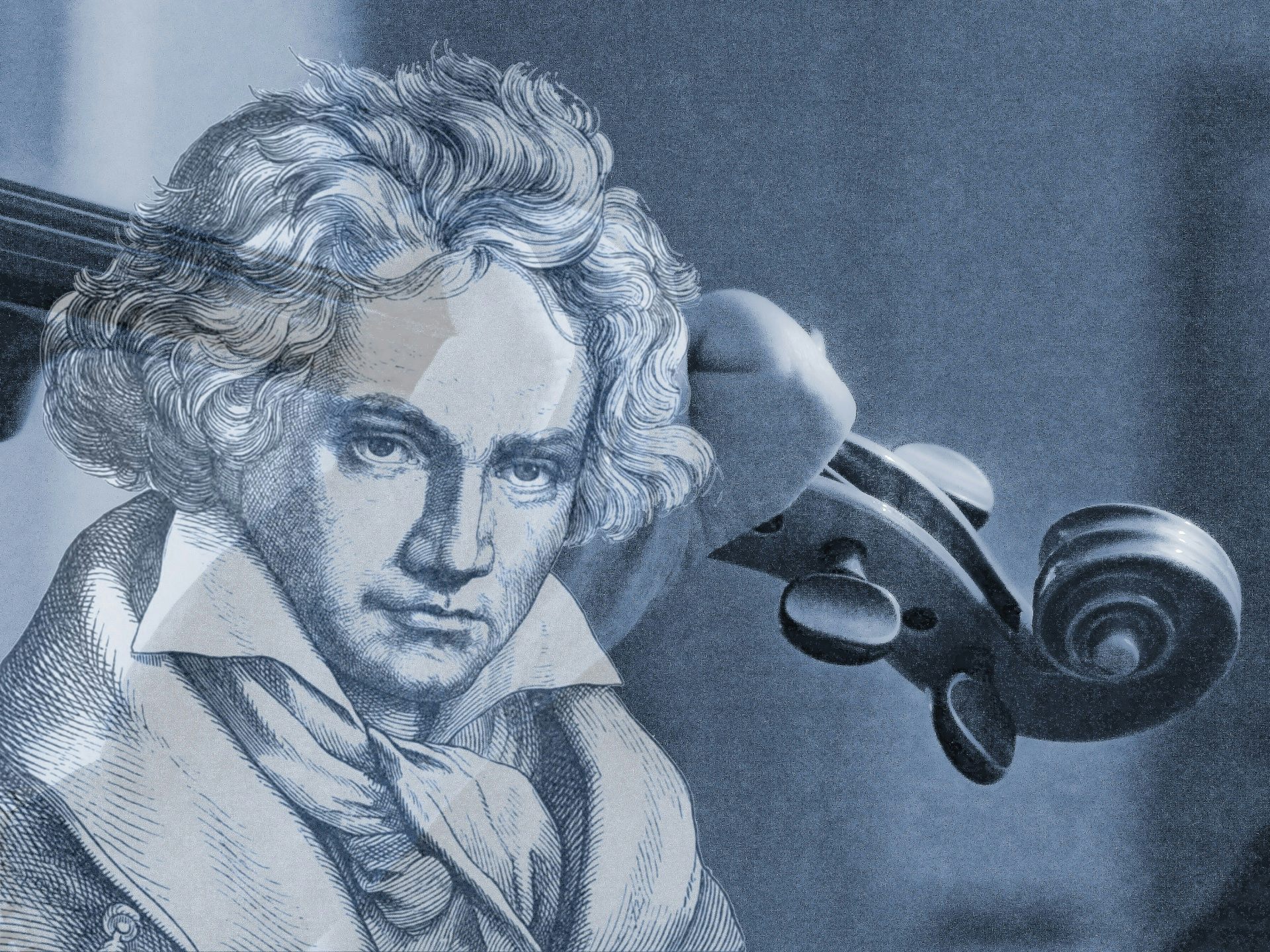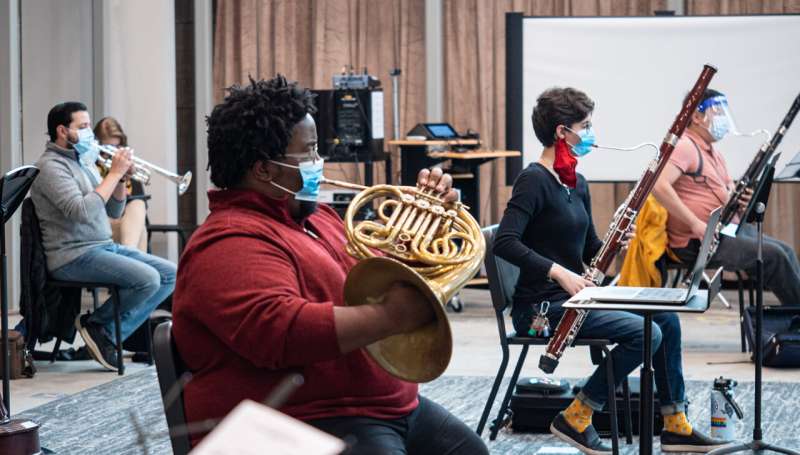I love listening to music. I love music so much I decided to study it in college. I’m earning a doctorate in music history, for which I have researched everything from early 20th-century French music to 1960s funk. I make and perform music as well. I have played drums in rock and pop bands and...
Sound
Hip Hop Song Linked to a Reduction in Suicides in the U.S.
Wide scale public attention to the song “1-800-273-8255” by American hip hop artist Logic was associated with an increase in calls to the US National Suicide Prevention Lifeline and a reduction in suicides, finds a study in the Christmas issue of The BMJ. The findings demonstrate the protective effect of positive media stories about suicidal thoughts...
Finding Their Groove: Researchers Bring Musicians, Dancers, and Robots Together for Disruptive Collaboration While Improving Human-Robot Trust
The impact of robots on human life is evident everywhere, from service sectors such as healthcare and retail, to industrial settings like automobile manufacturing. But it’s one thing to leverage robots as helpers — it’s another to connect with them emotionally, which could lead to better trust. Researchers at the Georgia Institute of Technology found...
Why Improvisation Is the Future in an AI-Dominated World
In his autobiography, Miles Davis complained that classical musicians were like robots. He spoke from experience – he’d studied classical music at Juilliard and recorded with classical musicians even after becoming a world-renowned jazz artist. As a music professor at the University of Florida, which is transforming itself into an “AI university,” I often think...
Success of Megamusicals Makes Space for Innovation
Megamusicals have often been criticised in the academic world and in the media for their homogenizing tendencies, but increasing academic attention on them is providing us with new insights. In her inaugural lecture at the University of Amsterdam, professor by special appointment of the Musical Millie Taylor will outline the impact of megamusicals on local...
How a Team of Musicologists and Computer Scientists Completed Beethoven’s Unfinished 10th Symphony
When Ludwig von Beethoven died in 1827, he was three years removed from the completion of his Ninth Symphony, a work heralded by many as his magnum opus. He had started work on his 10th Symphony but, due to deteriorating health, wasn’t able to make much headway: All he left behind were some musical sketches....
Simple Safety Measures Reduce Musical Covid-19 Transmission
As the COVID-19 pandemic swept the globe in 2020, musicians around the world were desperate for the answers to two pressing questions: Can playing musical instruments transmit COVID-19? And if so, what can be done? Now, halfway through 2021, the first official research results are in—and it’s good news: The show can go on. Published...
Researchers Develop Real-Time Lyric Generation Technology to Inspire Song Writing
Music artists can find inspiration and new creative directions for their song writing with technology developed by Waterloo researchers. LyricJam, a real-time system that uses artificial intelligence (AI) to generate lyric lines for live instrumental music, was created by members of the University’s Natural Language Processing Lab. The lab, led by Olga Vechtomova, a Waterloo Engineering...
‘Talking Drum’ Shown to Accurately Mimic Speech Patterns of West African Language
Musicians such as Jimi Hendrix and Eric Clapton are considered virtuosos, guitarists who could make their instruments sing. Drummers in west Africa who play hourglass-shaped percussion instruments called dùndúns can make their instrument not only sing, but talk. New research published in the journal Frontiers in Communication is one of the first to show the high degree...
Algorithm-Based Music Recommendations: Low Accuracy for Lovers of Non-Mainstream Music
A team of researchers from Graz University of Technology, Know-Center GmbH, Johannes Kepler University Linz, University of Innsbruck, Austria and University of Utrecht, the Netherlands, compared how accurate algorithm-generated music recommendations were for mainstream and non-mainstream music listeners. They used a dataset containing the listening histories of 4,148 users of the music streaming platform Last.fm...









